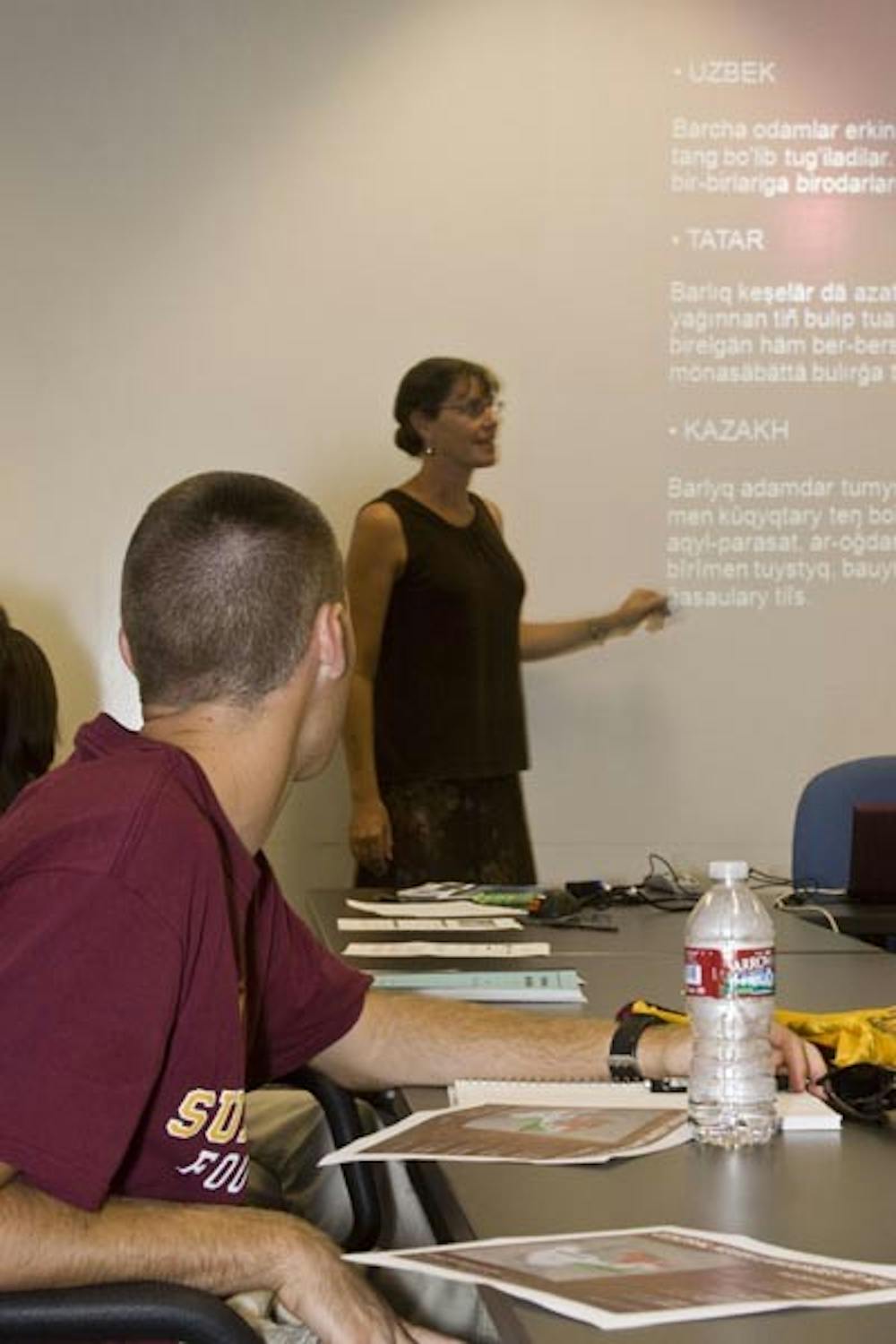ASU’s Critical Languages Institute is helping students get involved in military and diplomatic issues deemed important to the United States.
The institute’s summer program has been offering study abroad opportunities since 1991, but over the years, the regions that students travel to has shifted.
With political tension between the U.S. and several Central and South Asian countries, the program is pushing for students to attain a level of language expertise and cultural understanding of those regions.
Languages defined as “critical” — those spoken within countries that are of political importance to the U.S. — change depending on the nation’s diplomatic strategies, said Kathleen Evans-Romaine, director of CLI. Several Eurasian languages have been dubbed "critical" because of the U.S.’s current involvement in the region.
This summer, a group of students from the program traveled to Central Asia in Dushanbe, the capital of Tajikistan.
The institute offers up to 10 credits for students who enroll in the 11-week program, which includes instruction for eight weeks on the ASU campuses and three weeks of studying abroad for selected students.
ASU is the only university in the nation to combine semester courses, intensive summer courses and summer study-abroad for Eurasian studies, she said.
The hope is that students will achieve language proficiency, which is defined as six semesters of study, in less than two years, Evans-Romaine said.
Some Eurasian languages that are currently deemed critical to the politics of the U.S. are Farsi, Dari, Tajik, Pashto and Uzbek because of the countries where these languages are spoken.
Farsi, Dari and Tajik are contemporary Persian dialects. Farsi is the main dialect spoken in Iran, Dari is spoken in Afghanistan, and Tajik is spoken mainly in Central Asia.
The institute also teaches Pashto, which is spoken in Afghanistan and northern Pakistan.
“[Pashto] is best known in the U.S. as ‘the language of the Taliban,’” Evans-Romaine said in an e-mail. “Students of Pashto tend to be interested in Afghanistan or in issues related to counterterrorism or development work.”
The Uzbek language is spoken in an area that spans from Turkey to Central Asia, she said.
“By offering instruction in Farsi, Dari, Tajik, Pashto and Uzbek, ASU is contributing to efforts to boost the number of U.S. experts in this critical region of the world,” Evans-Romaine said.
Tyler Gaston, a communications junior with a minor in Spanish, just completed his study abroad journey in Dushanbe, Tajikistan. Gatson recognized his ability to learn foreign languages and that led him to the CLI program. He is in the Air Force ROTC and plans to be a professional pilot.
“As a prospective officer in the U.S. Air Force, it is highly beneficial for me to have an understanding of a critical language, as this language is spoken in areas of interest such as Iran and Afghanistan,” Gaston said.
He completed the elementary Persian course, which included Farsi, Dari and Tajik, in order to travel to Tajikistan and live with a Tajik host family.
For safety reasons, Gaston did not mention his military status to locals.
“Central Asia was an eye-opening experience,” Gaston said. “It really forces you to appreciate luxuries as simple as reliable electricity, plumbing and not eating curdled milk and sour yogurt for breakfast every day.”
Elementary Persian instructor Azim Bayzoev taught Gatson and about 30 other students this summer with about half of the class continuing on to study abroad.
Bayzoev has teaching experience in Tajik, Farsi and Russian.
Gaston believes his studies at ASU and overseas have opened several doors.
“Since Persian is a language rarely spoken by Americans, I believe that this experience will make me a far more marketable person, both in the military as well as the civilian world,” he said. “Having a foundation in a critical language will allow me to better serve the U.S.”
Reach the reporter at jgetting@asu.edu





